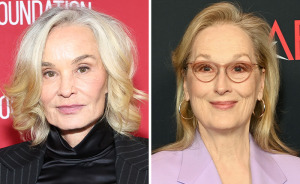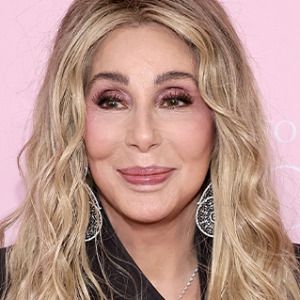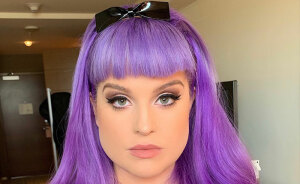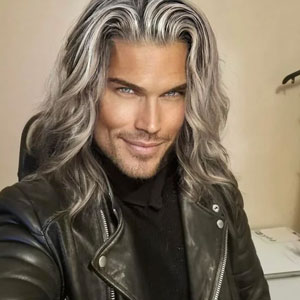There’s nothing like having a good old cry to clear your head and soothe your nerves. It’s good to know, then, that society is getting over the stigma that crying is a sign of weakness and relabeling it as a display of empathy and strength.
The cinema has long been one of the safest places to sob. You’re in the dark, nobody is watching you, and you’re probably not the only one spilling some tears. Someone asked netizens what someone should watch when they need a really good cry, and here’s a list of our favorite answers.
More info: Reddit
This post may include affiliate links.

 UP!
UP!
Humans are the only animals to cry tears. In fact, we cry three different types of tears, according to Medical News Today. The first kind of tear is the basal tear, constantly secreted by your tear ducts to keep your eyes moist every time you blink. The second, the reflex tear, is triggered by irritants such as smoke or onions. The final tear is the emotional one, which contains a higher level of stress hormones than the other two.
Someone might try to hold back their tears if they see them as a sign of weakness, but science suggests that doing so might mean missing out on a plethora of health benefits. Researchers have found that crying has a soothing effect, helps to relieve pain, enhances mood, releases toxins, relieves stress, aids sleep, and even fights bacteria.
 For me, if you have ever had a really bad heartbreak, Eternal Sunshine of the Spotless Mind. It [ends] me inside but I love that movie so much.
For me, if you have ever had a really bad heartbreak, Eternal Sunshine of the Spotless Mind. It [ends] me inside but I love that movie so much.
In his article for Harvard Health Publishing, Leo Newhouse writes that crying is a critical safety valve, mostly because bottling unpleasant feelings up inside (what psychologists call repressive coping) can be detrimental for our health. Studies have linked repressive coping with a less resilient immune system and cardiovascular disease, as well as with mental health conditions, including stress, anxiety, and depression.
The American Psychological Association says women and people assigned female at birth cry an average of 30 to 64 times per year, while men and people assigned male at birth cry an average of five to 17 times per year. Researchers say the feelings that are most likely to conjure up a good cry will vary by age, gender, and culture, but universally, the most common feelings that elicit tears are hopelessness and helplessness.
 The video of Johnny Cash singing hurt.
The video of Johnny Cash singing hurt.
You don't have to have the video or music. Just the man's voice,the emotion that you can hear in each word, it can break you.
 My Girl. (1991)
My Girl. (1991)
I walked past it in the video store for 20 years waiting to be in the right mood. Then one day I grabbed it. No regrets. Great show. .
In his article for Psychology Today, Paul J. Zak writes that, when we watch a movie, cognitively, we know that the story we are watching is (usually) fictional and the actors are paid to play on our emotions. So, why do we end up sobbing? It all comes down to the neuropeptide oxytocin. Oxytocin engages brain circuits that make us care about others, even complete strangers, even if they’re fictional and on a 20-foot-high screen.
In his book, Flicker: Your Brain On Movies, Dr. Jeffrey Zacks explains how our brains had evolved to their current state well before movies were around. Basically, this means that we’re processing these usually fictional narratives now with the same grey matter our pre-tech ancestors were using to watch mammoths in the distance millennia back. This goes some way to explaining the psychology behind why we react so enthusiastically to cinema.
 Life Is Beautiful... you might lose your soul at the end scene.
Life Is Beautiful... you might lose your soul at the end scene.
 Old Yeller.
Old Yeller.
In his video essay for The Closer Look, Henry Boseley dissects three movies (UP, The Green Mile, and Interstellar) that typically make audiences cry, and explores the filmmaking techniques used in each to explain how it’s done. According to Boseley, the key to creating sadness does not lie in the action, but rather the reaction of those affected by it.
Boseley remarks on the recurring theme of injustice in each film, and how the audience is compelled to identify with the characters since it’s such an integral part of any sad scenario. He goes on to add that a bad filmmaker will make the audience understand that the character is sad, while a good one will make the audience understand why the character is sad.
 The Tales of Ba Sing Se
The Tales of Ba Sing Se
"*~Leaves from the vine. Falling so slow. Like fragile, tiny shells. Drifting in the foam. Little soldier boy, come marching home. Brave soldier boy, comes marching home.~*".
Philadelphia.
Even the song Streets of Philadelphia which Springsteen wrote for the film is enough to get me crying
 A Dog's Purpose.
A Dog's Purpose.
Have you ever found your face leaking while you were watching a movie or even cuddled up on your couch in an attempt to Netflix and chill? That’s probably just the oxytocin talking.
Which of the flicks in this list are most likely to get your waterworks going? Upvote your favorites and don’t forget to comment on the ones you found most relatable!
 Beaches.
Beaches.
I watched this during its release in NYC. I was meeting my friend after her class. This was pre-cell phone ownership and of course we missed each other in the ticket line and the line to get to our seats. Well, watched the movie, alone, without my bestie at my side. By the end, sniffling and loud crying of moviegoers around me, including my own wailing, I stumbled out of the theater rotunda found my bestie. We fell into each other's arms with renewed tear. It felt like we were whole again after that. Can't watch it again tho, sorry.
 Ghost...gets me everytime or
Ghost...gets me everytime or
A walk to remember.
 Broke back Mountain.
Broke back Mountain.
 Hachiko.
Hachiko.
The goodest boy, may he and his owner be happy together in the afterlife
This should get all the upvotes.. I have cried multiple times watching it!
 It’s A Wonderful Life never fails me. The first time I watched it I was hyperventilating-crying. Moral of the story: the interconnectedness of all lives and meaningful relationships.
It’s A Wonderful Life never fails me. The first time I watched it I was hyperventilating-crying. Moral of the story: the interconnectedness of all lives and meaningful relationships.
“No man is a failure who has friends.”.
 PS - I Love You (goofy romance but my god it’ll get ya).
PS - I Love You (goofy romance but my god it’ll get ya).
Unpopular opinion “Click”, weirdly sad a*s movie.
The Adam Sandler movie right? Yeah, starts off as a typical goofy movie and then hits you with the realism.
 Dear Zachary.
Dear Zachary.
That "Happy family under the Christmas tree" scene was the single worst thing I have ever seen...
 Manchester by the sea.
Manchester by the sea.
 My Dog Skip.
My Dog Skip.
Atonement.
 Interstellar.
Interstellar.
I saw this when I was on a date with a girl. Our impressions were completely different. I was thrilled, and she was so bored that she wanted to leave the cinema during the screening. Still, I wouldn't call Interstellar a tearjerker.

 Dark Mode
Dark Mode 

 No fees, cancel anytime
No fees, cancel anytime 








































































